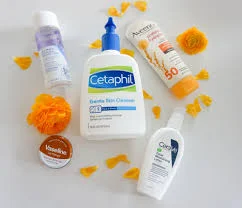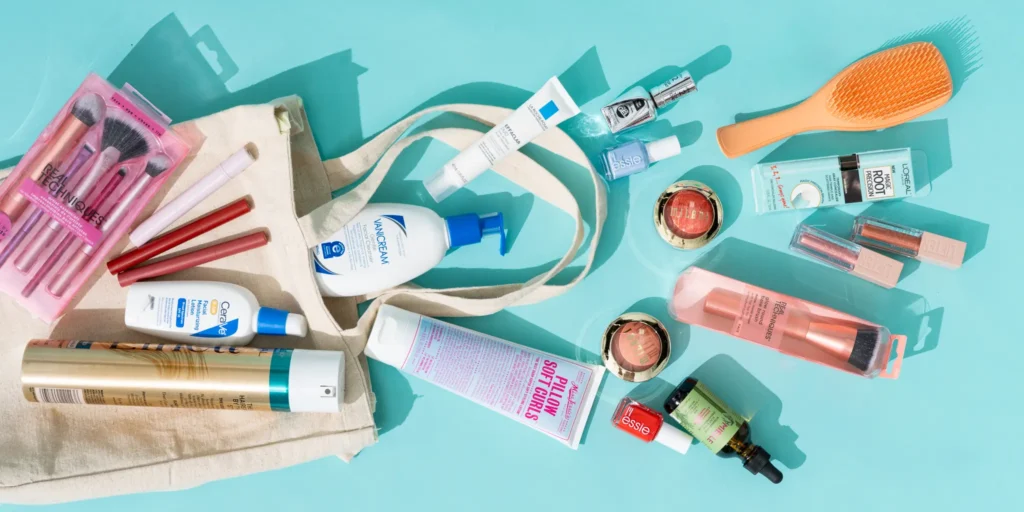Nigeria’s beauty and skincare market is experiencing unprecedented growth. In 2023 alone, the country generated an impressive $7.8 billion in beauty-related revenue—contributing the largest share of Africa’s total $57.12 billion industry earnings. This figure not only cements Nigeria’s position as the continent’s leading consumer of beauty products but also signals a golden opportunity for entrepreneurs and brands ready to tap into this vibrant sector.
The demand for skincare and beauty solutions in Nigeria is unmistakably high. From urban centers like Lagos and Abuja to smaller cities, Nigerians are investing in personal grooming and skincare. Whether driven by social media trends, health-consciousness, or a desire to enhance self-confidence, the appetite for beauty products continues to expand.
So, if you’re wondering whether the beauty business in Nigeria is profitable, the answer is a resounding yes. But succeeding in this space requires more than just good products—it demands strategy, authenticity, and innovation.
Below is a breakdown of what makes the skincare industry lucrative in Nigeria, along with five actionable strategies to help you sell beauty products online effectively.

Why the Skincare and Beauty Industry is So Profitable in Nigeria
Several key factors are fueling the rapid rise of this industry:
1. Social Media Influence
The rise of Instagram, TikTok, and YouTube has transformed beauty and skincare into cultural phenomena. Nigerian influencers and celebrities regularly post skincare routines and product recommendations, inspiring massive interest among followers eager to emulate their favorite personalities.
2. A Diverse Customer Base
Nigeria boasts a wide variety of skin tones and types, making it an ideal market for different product niches—such as melanin-rich skincare, acne treatments, organic products, or anti-aging solutions. This diversity allows brands to serve multiple segments and expand their product range.
3. High-Profit Margins
Beauty products—especially premium skincare items—often have high profit margins. Whether you’re selling luxury serums, facial oils, or custom face masks, you can earn a significant return on investment with the right pricing strategy.
4. Recurring Sales Potential
Skincare products are consumables, meaning customers need to restock regularly. Once consumers trust a product, they’re likely to repurchase it, leading to a steady flow of recurring revenue.
5. Access to Natural Ingredients
Nigeria is rich in locally sourced ingredients like shea butter, coconut oil, turmeric, black soap, and cocoa butter. Using these ingredients in your formulations not only cuts costs but also boosts brand credibility and appeal.
6. Export Opportunities
Nigerian-made skincare brands are increasingly gaining global recognition. With effective branding and logistics, businesses can reach international customers eager to try authentic African skincare solutions.
Five Effective Strategies for Selling Beauty Products in Nigeria
Building a successful beauty brand in Nigeria’s competitive market requires strategic planning. Here’s how to position yourself for success:
1. Understand Your Market
Before launching, you must be crystal clear about what you’re selling and who you’re targeting. Is your product designed for oily skin, hyperpigmentation, or sensitive skin? Does it cater to teenagers or older adults?
Your value proposition should address a specific concern and clearly differentiate your product from the competition. Speak to the needs, struggles, and desires of your ideal customer.
2. Write Compelling Product Descriptions
Your product descriptions should do more than just list ingredients—they should inspire confidence. Address potential concerns like effectiveness, safety, and skin compatibility. Customers often ask: “Will it work for me?” Your descriptions should reassure them by emphasizing results, testimonials, and key benefits.
Don’t forget to include directions for use, expected results timeline, and any unique features your product offers.
3. Leverage Social Media Marketing
Social media is your most powerful tool for growth in Nigeria’s beauty space. Platforms like Instagram and TikTok allow you to:
-
Showcase product demos and tutorials
-
Share customer reviews and before-after photos
-
Collaborate with influencers and beauty bloggers
-
Run giveaways and flash sales to build excitement
Visual appeal is key—use clean, professional images and engaging captions. You don’t need to go viral overnight; consistency and authenticity will build a loyal audience over time.
4. Prioritize Content Marketing
Content marketing is an excellent way to establish your brand as a trusted authority in skincare. Create blog posts, infographics, and short videos educating your audience about skincare tips, ingredient benefits, and proper usage techniques.
For example:
-
“5 Natural Remedies for Acne-Prone Skin”
-
“Why Shea Butter is a Must-Have in Your Routine”
-
“How to Layer Your Skincare Products Correctly”
This kind of content drives organic traffic to your website and boosts your brand’s credibility.
5. Focus on SEO (Search Engine Optimization)
Having a website or blog is not enough—people must be able to find it. SEO ensures your product pages and content show up when customers search for keywords like “best face cream for oily skin in Nigeria” or “natural skin lightening cream in Lagos.”
Optimize your product titles, meta descriptions, and blog content with relevant keywords. The better your SEO, the higher your visibility—and the more sales you can generate.
Building a Strong Brand Through Logistics and Delivery
One often-overlooked element of the beauty business is efficient logistics. Fast, reliable delivery improves customer satisfaction and encourages repeat purchases. Delayed or poorly handled deliveries can hurt your brand’s image, especially in the age of instant gratification.
Consider opening a business account with a reliable courier service like DHL. They offer flexible delivery options that allow customers to choose their preferred shipping speed and location. Whether you’re selling nationwide or shipping internationally, smooth logistics can make or break your customer experience.
Final Thoughts
Nigeria’s beauty industry is more than just a trend—it’s a long-term, revenue-rich opportunity. With the right mindset, clear brand identity, and a strategy built on customer trust, you can successfully enter and grow in this market.
The key lies in:
-
Knowing your audience
-
Crafting effective messages
-
Using digital tools and platforms wisely
-
Providing top-tier products and service
By implementing these approaches, you won’t just sell skincare products—you’ll build a brand that thrives in one of Africa’s most dynamic consumer markets.





